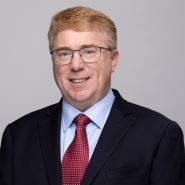License Terms Can Limit Extent of Patent Exhaustion
- September 25, 2017
- Article
Associated People
Earlier this summer, the Supreme Court in Impression Products limited a patent owner’s ability to recover damages for patent infringement when a customer violated post-sale restrictions imposed by the patent owner. Its conclusion was straightforward, “once a patentee decides to sell – whether on its own or through a licensee – that sale exhausts [the patentee’s] patent rights.” 137 S. Ct. 1523, 1535 (2017). Further, the Court confirmed that a licensee’s authorized sale “is treated, for purposes of patent exhaustion, as if the patentee made the sale itself.” Id. An issue of some debate after the decision was the extent to which a patent owner could collect patent damages for unauthorized sales made by a licensee.
Recently, Magistrate Love in the Eastern District of Texas held that a patent owner could recover damages in a patent infringement suit, for sales made by a licensee that exceeded the scope of the license. Chrimar Sys., Inc. v. Alcatel-Lucent Enterprise USA, Inc., No. 6:15-cv-00163, D.I. 462 (E.D. Tex., Aug. 3, 2017). Chrimar had entered into a license agreement with a supplier. The agreement included a provision titled “Unlicensed Products.” That provision in turn stated that products sold to a company in litigation with Chrimar were unlicensed products, and an Appendix to the agreement specifically listed Alcatel-Lucent as one of the companies in litigation with Chrimar. Nonetheless, Alcatel-Lucent argued that sales made by the supplier to Alcatel-Lucent could not be infringing due to the doctrine of patent exhaustion in view of Impression Products.
In his ruling, Magistrate Love relied on the Supreme Court’s distinction between an earlier Supreme Court decision in General Talking Pictures and the facts in Impression Products. Slip Op. at 7, citing 137 S.Ct. at 1535. Regarding General Talking Pictures, the Supreme Court explained, “There, a licensee ‘knowingly ma[de] ... sales . . . outside the scope of its license…. We treated the sale ‘as if no license whatsoever had been granted’ by the patentee, which meant that the patentee could sue both the licensee and the purchaser—who knew about the breach—for infringement….. General Talking Pictures, then, stands for the modest principle that, if a patentee has not given authority for a licensee to make a sale, that sale cannot exhaust the patentee’s rights.” 137 S.Ct. at 1535 (internal citations omitted). Thus, because the supplier did not comply with the terms of its license with Chrimar, its subsequent sales to Alcatel-Lucent were unauthorized and Chrimar’s patent rights were not exhausted.
More generally, Magistrate Love summarized the broader teaching from Impression Products as “a license may impose restrictions on a licensee, but any post-sale restrictions are not enforceable through patent law.” Slip Op. at 6, citing 136 S.Ct. at 1535-36. While the Federal Circuit has not addressed patent exhaustion in the context of sales made in violation of a license agreement since Impression Products, patent owners should not wait for the Federal Circuit to weigh in. Instead, consider drafting license agreements that clearly identify what actions are not licensed to minimize the risk of unintended patent exhaustion.
Recent Publications
5 IP Rules to Know to Protect Your Business in the United States (article in French)
Coaching INPI Newsletter










 Counseling & Strategic Advice
Counseling & Strategic Advice IP Transactions
IP Transactions Litigation
Litigation PTAB Proceedings
PTAB Proceedings Start-Up
Start-Up Technology Transfer
Technology Transfer Trademark & Designs
Trademark & Designs U.S. Patent Procurement (Application Drafting & Prosecution)
U.S. Patent Procurement (Application Drafting & Prosecution)








